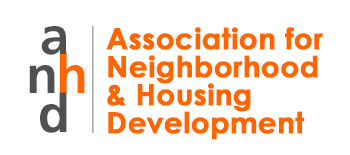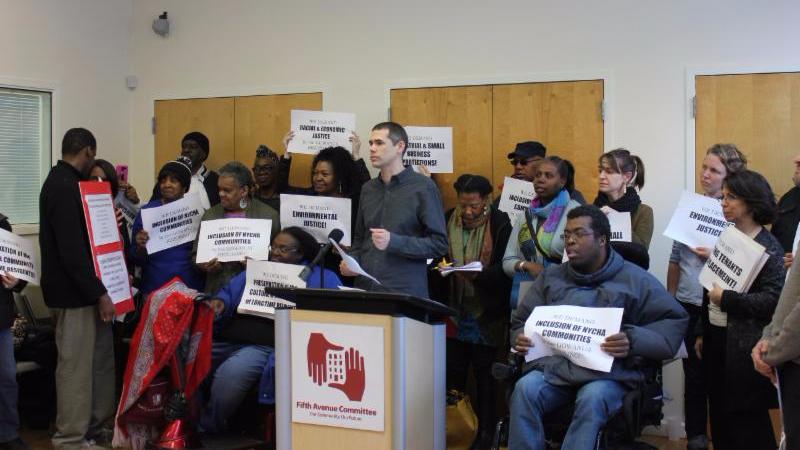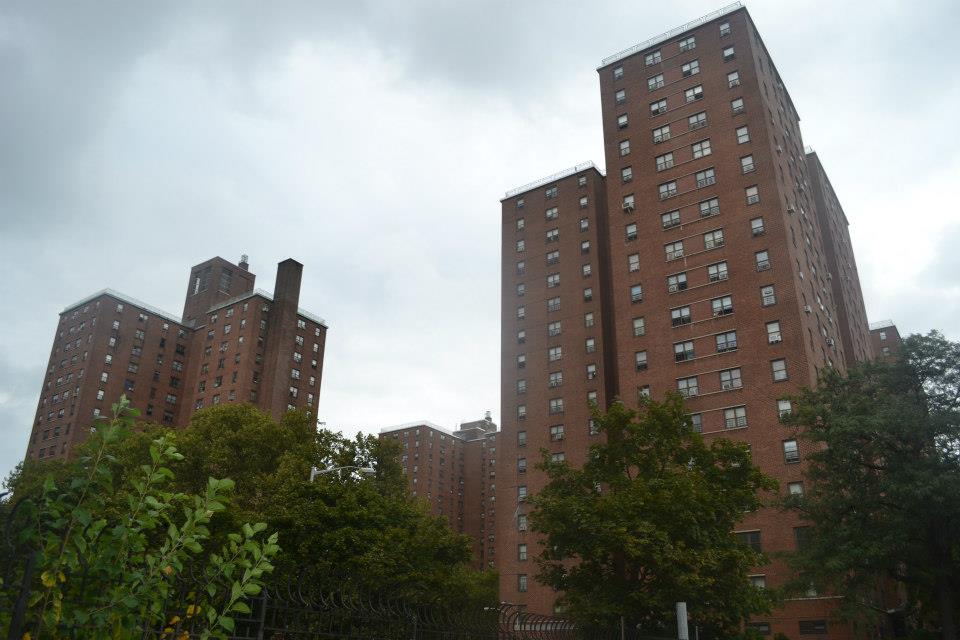Gowanus Community Comes Together for Rezoning Campaign with the Launch of the Gowanus Neighborhood Coalition for Justice
Yesterday afternoon members of the Gowanus community came together in force for the public launch of the Gowanus Neighborhood Coalition for Justice (GNCJ) and the release of their Priorities Platform. Formed in response to the City’s proposed rezoning of the neighborhood, the GNCJ is a coalition of local residents, workers, businesses, and community organizations united in their effort to ensure the voices of under-represented local stakeholders are meaningfully heard. Holding signs stating their demands, including, “Protecting tenants from displacement” and “Inclusion of NYCHA communities in the Gowanus rezoning,” the Coalition made a forceful and eloquent case for why any rezoning in Gowanus must move forward under the framework of advancing racial, social, and economic justice. Holding signs stating their demands, including, “Protecting tenants from displacement” and “Inclusion of NYCHA communities in the Gowanus rezoning,” the Coalition made a forceful and eloquent case for why any rezoning in Gowanus must move forward under the framework of advancing racial, social, and economic justice.
Speakers stressed the point that the City must avoid the mistakes of previous rezonings – including those along nearby 4th Avenue in 2003 and 2007 – that have led to the displacement of rent stabilized tenants, local businesses, and other community members to this day. To avoid this fate, the City must include the people most deeply impacted by these changes in the actual decision-making process. As Dave Powell of the Fifth Avenue Committee stated, “No rezoning that does not incorporate the voice of longtime residents is authentic.”
To this end, the GNCJ released their Priorities Platform outlining the five intersecting principles under which any rezoning should occur:
- Advance Racial and Economic Justice
- Create Real Affordable Housing and Protect Tenants from Displacement
- Promote Environmental Justice
- Uplift the Culture and Community of Longtime Residents
- Protect Local Businesses Where We Shop and Work
Coalition members, including NYCHA residents and rent stabilized tenants, elaborated on these points and shared personal stories, calling for strong anti-displacement measures, the production of deeply affordable new housing, and substantial investments in NYCHA. Industrial business owners and the organizations that support them spoke about the urgent need to preserve industrial spaces and the good paying jobs they provide. Speakers called for the protection of small businesses that serve low- and moderate-income residents, as well as a commitment to deal with the pollution and environmental inequality that have been a part of Gowanus for decades. All of these demands pointed to a broader call to address the existing racial and economic segregation in the community.
The Coalition also released a neighborhood profile of Gowanus and its residents, highlighting the area’s history as an industrial hub as well as a diverse, mixed-income residential community – both of which are currently at risk. The report notes the massive rise in real estate value and speculation over the last 15 years in Gowanus and with it the growing inequality gap between the highest and lowest income households as the neighborhood has become both wealthier and whiter. And yet, despite these challenges, Gowanus is still home to a large population of NYCHA and rent-stabilized residents – a vital part of the community whose needs must not be ignored.
The Gowanus Neighborhood Coalition for Justice understands that a rezoning and the investments that it will bring could either help address long-standing challenges and problems in the neighborhood or significantly increase the displacement of long-term residents and businesses and deepen existing inequality. There is a chance for the City to get things right in Gowanus, but it must take the demands of the Coalition seriously and work with them to ensure the rezoning is in the best interest of the entire community.
 ANHD 2016 Building the Community Development Movement
ANHD 2016 Building the Community Development Movement


